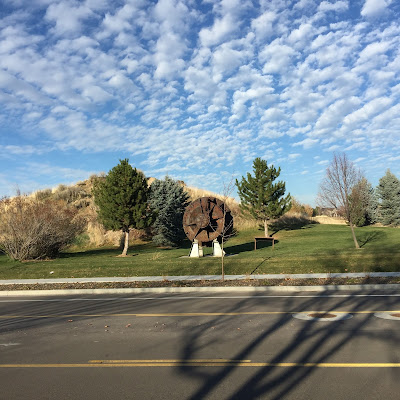The places we call home. . . this is one of them, the one in Idaho.
Winter is coming on.
A new The New Yorker has the requisite two poems,
a complex pantoum on a bad relationship,
and this one, which I prefer.
Attraction
She collected men the way a light left on collected
bugs. It was an old story---money, gravity, the right amount of cleavage. And yet the most successful root never stops fleeing the seed where it began. The cars of two drunks decide to kiss, the lit match gives in to the windy field. Here's a lesson: when people heard there was an albino deer in the woods behind our house, they set out the apples and corn. That was twenty years ago. The shotgun pellets stuck in our tree continue their slow ascent.
Charles Rafferty
The New Yorker, October 31, 2016, page 55.
Of course I love the part about the root fleeing the seed. But the shotgun pellets ascending is spectacular, too. There is a man who lives near the North Woods who takes many pictures of various albino deer near where he lives. He shows them on Facebook and makes an annual calendar of their portraits, but I don't think he tells people exactly where they live. He has given the deer names; one matriarch is known as Blue Eyes.
Your assignment tonight: write a 10 to 12 line prose poem that tells a story and has some philosophy in it, too. jhh









